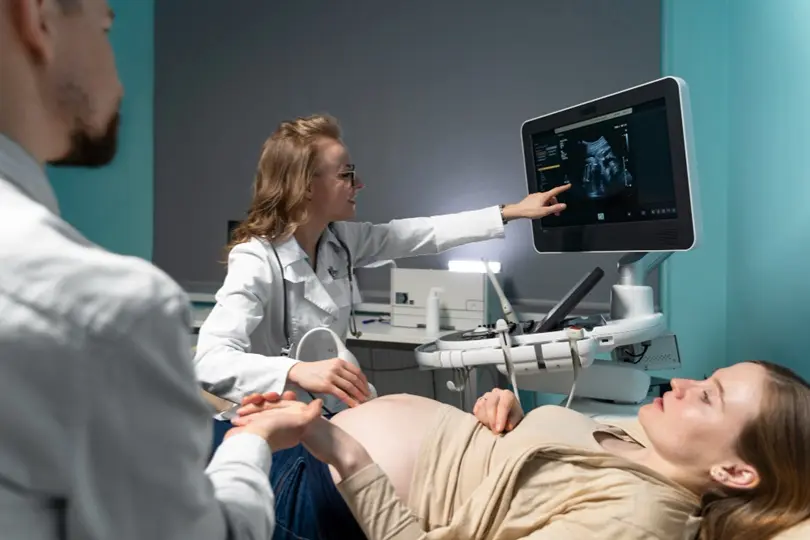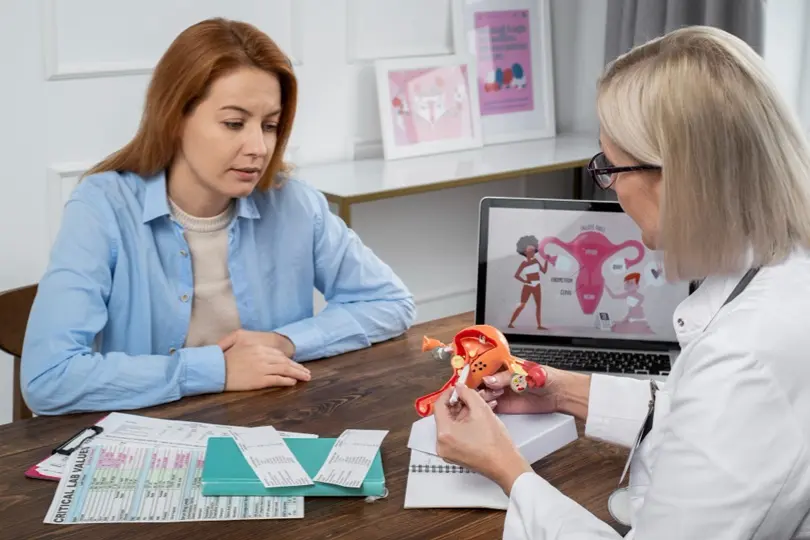
Women’s health is complicated, ever-changing, and very personal. As women grow from teenagers to adults and enter menopause, their bodies change a lot. These changes mean they need special care. One of the best things women can do to stay healthy is to see a gynecologist. These check-ups aren’t just about reproductive health—they help with overall wellness, finding problems, and giving women the knowledge to take charge of their health.
What a Gynecologist Does
A gynecologist is a doctor who focuses on women’s reproductive health. This includes the uterus, ovaries, fallopian tubes, the cervix, and the vagina. But their job goes beyond just these organs. These doctors can help with hormone problems, irregular periods, sexual health, fertility, menopause, and even mood changes linked to hormones. Regular check-ups with a gynecologist help track your health over time and catch problems. These visits give you a chance to ask questions, talk about symptoms, and get advice on birth control and cancer tests.
Early Detection Saves Lives
One of the key reasons to visit a gynecologist often is to catch serious health problems. Take cervical cancer, for instance. Doctors can treat it well if they find it soon through regular Pap smears. Breast checks help spot lumps or odd changes that might point to breast cancer. Pelvic exams can show signs of ovarian cysts, fibroids, or infections you might not notice otherwise. Many problems with female organs don’t cause symptoms at first. Without checkups, these issues can grow and become harder to fix. Finding them not leads to better results but can also cut down on the need for major procedures or long-term drugs.
Reproductive Health and Family Planning
Whether you want to have a baby, avoid getting pregnant, or handle a reproductive health issue, a gynecologist can help you best. They give personalized tips on birth control choices, fertility treatments, and health before pregnancy. For women who struggle to get pregnant, a gynecologist can run tests to find out why and send you to a fertility expert if needed.
Also, gynecologists help manage problems like polycystic ovary syndrome (PCOS), endometriosis, and uterine fibroids. These can affect fertility and overall health. With the right care plan, many women can handle these conditions well and live a good life.
Menstrual and Hormonal Health
Irregular periods of heavy bleeding, cramps, and mood swings aren’t just annoying—they might point to deeper health problems. A gynecologist can figure out if these signs are normal or if they show a condition that needs treatment. Hormone imbalances can also mess with your energy, weight, skin, and mental health. Gynecologists can check your hormone levels and suggest ways to fix them, like changing your lifestyle, taking supplements, or using hormone therapy to get you feeling better.
Menopause and Beyond

Menopause happens as women age, but it often brings tough symptoms like hot flashes, night sweats, mood swings, and a dry vagina. A gynecologist can help women through this change by offering support and ways to treat discomfort and boost long-term health. Women after menopause also face higher chances of getting osteoporosis and heart disease. Regular check-ups with a gynecologist make sure these risks are monitored and handled the right way.
Sexual Health and Wellness
Sexual health plays a crucial role in overall wellness, but people often ignore or shame it. Gynecologists create a private, secure environment to talk about issues like sex-related pain, reduced sex drive, or STIs. They can test, treat, and advise women to boost their confidence and knowledge about sexual health. Talking with a gynecologist can also help tackle problems linked to self-image, closeness, and how partners interact—subjects that are very personal yet matter a lot to a woman’s health and joy.
Mental and Emotional Support
Women’s health goes beyond just the physical—it includes emotional and psychological aspects too. Hormonal shifts, issues with reproduction, and big life changes can all have an impact on mental health. Gynecologists know how to spot signs of anxiety, depression, and other mood problems that might be connected to hormone changes or reproductive health concerns. By looking at these issues from all angles, gynecologists can point patients to mental health experts, suggest lifestyle tweaks, or recommend medical treatments to boost emotional wellness.
Local Access to Quality Care
If you live in Virginia and want to find a trusted gynecologist in Richmond, VA, women can get compassionate, expert care near their homes. Nearby clinics and hospitals provide many services ranging from regular checkups to advanced tests and invasive operations. Having a dependable doctor close by helps you keep up with your health, whether you’re booking your first appointment or continuing long-term care.
Empowerment Through Education
Seeing a gynecologist has a powerful effect on women. It gives them a chance to get to know their bodies better. Learning how your reproductive parts work, what’s okay and what’s not, and how to look after yourself as you grow older helps you feel sure about making smart choices for your health. Gynecologists do more than just treat patients. They teach stand up for yourself, and work with you to keep you healthy.
Conclusion
Seeing a gynecologist plays a key role in women’s health. These visits do more than just routine checks – they help catch issues, provide care for reproductive health, keep hormones in balance, and offer emotional support. When you make these appointments, you’re putting money into your health for the long haul, your energy, and your peace of mind. Whether you need to manage a specific health issue or just want to stay ahead of the game, finding a gynecologist you trust in Richmond, VA, can change things. It can lead to a healthier life where you feel more in control.
Photo Credit:
Photo 1, Credit to Freepik || Photo 2, Credit to Freepik (CC0 1.0)




